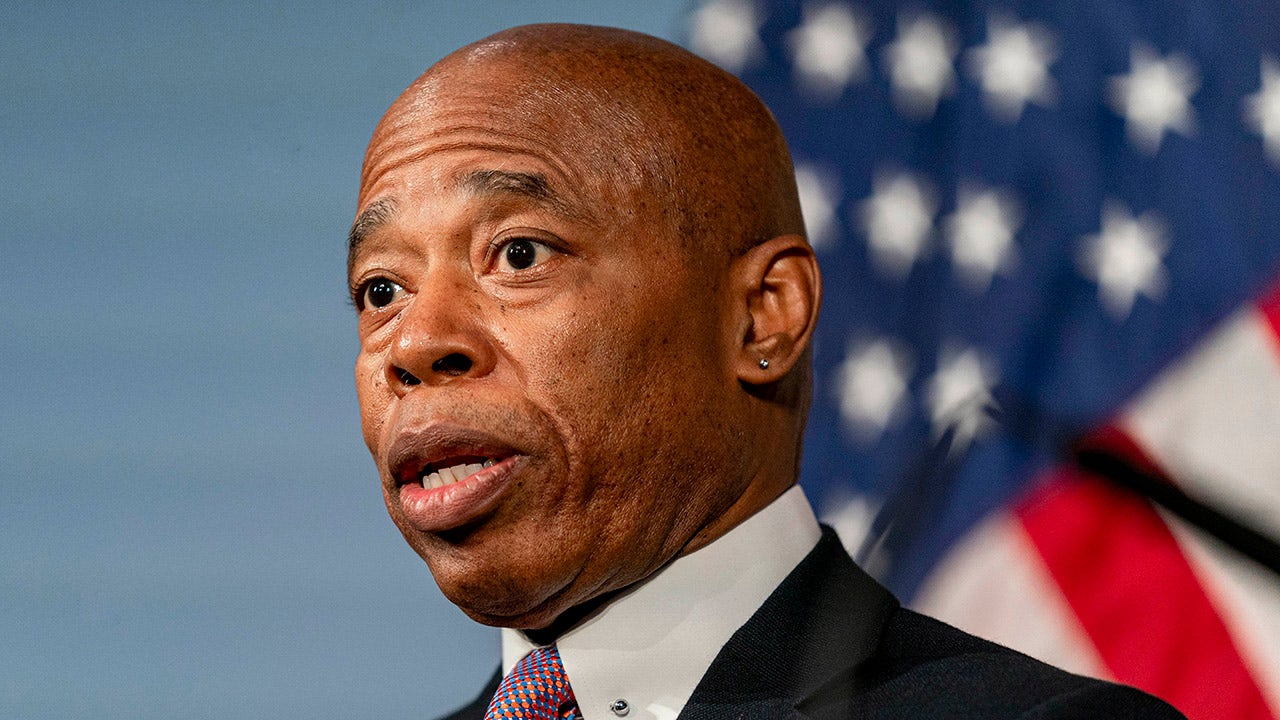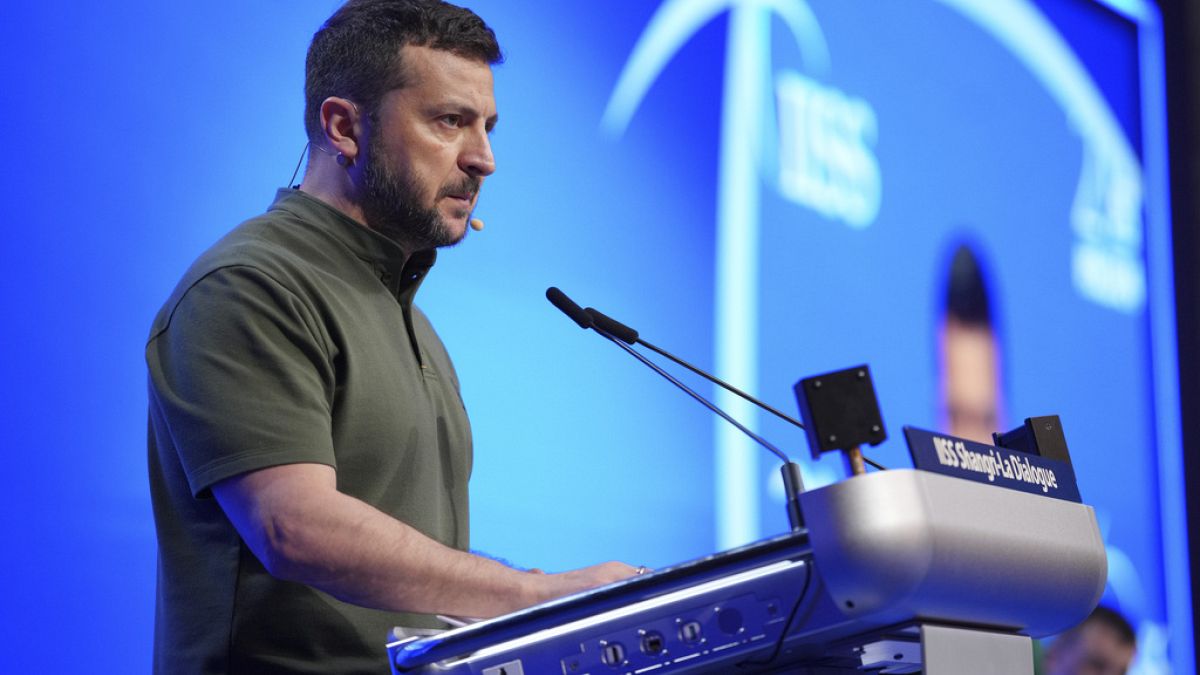Georgia
Lawmaker mothers with children in tow are still few in numbers but bring often missing perspective • Georgia Recorder

A lactation pod at the state Capitol. An official “baby of the House.” A makeshift nursery in a small office once reserved for freshman senators.
The landscape at the Georgia Capitol is changing as more women have been elected to the Legislature and as the work of caregiving is increasingly shared among spouses.
But the number of women serving in Georgia’s Legislature is still out of proportion with the state’s overall makeup, with women making up 34% of both chambers but half of the population. Women lawmakers with young children also continue to be a relatively rare sight under the Gold Dome, where decisions affecting education and families are being regularly made.
“When there are more women serving in the institution, the legislative body, then accommodations are made for those women, and accommodations are made for the women voters and the families of the women voters they represent,” said Melita Easters, the executive director and founding chair of Georgia WIN List, which is a political action committee focused on electing more Democratic women who support reproductive rights.
“Because in numbers, they can force consideration of special concerns. They can, as they often have, join hands across the aisle and make sure that something like the maternal mortality crisis is addressed,” Easters said.
Easters said her organization has long focused on recruiting more women with young children to run for office. She said it’s not uncommon for women to cite concerns like childcare or wanting to wait until their children are adults as reasons to stay on the political sidelines.
The many miles between Atlanta and legislative districts in south Georgia can also be a barrier.

Rep. Anne Allen Westbrook stands out for not only having middle-school aged children but also because her family is 228 miles away when mom is in Atlanta representing her Savannah-based district.
Living that far away from the Capitol does not just mean long days for her. It also means spending as many as five days away from her family at a time during the three months Georgia’s Legislature is in session.
“That is hard, and you have to believe that it’s worth it,” Westbrook, who is also an attorney, said in an interview. “And I do think it’s really important that we have the voices of mothers at the Capitol. We do most of that care work. We often are the ones most intimately involved in issues like education. We were the ones mostly sitting at those dining tables trying to figure out pandemic learning.
“And on a personal level, in our family, we think it’s important for our boys to see that moms do this work too, and there’s value in that, and also that dads can be nurturers as well,” she said.
When the freshman Democrat first ran for public office in 2020 as part of a crowded field for an open House seat, she had two sons in elementary school and another in high school. She lost that race by a razor-thin margin but then won when the seat opened up again two years later.
But running for public office wasn’t always part of her plan. Concerns about local gun violence drove her to join Moms Demand Action and push for changes on the state legislative level. She said she was surprised by the lack of diversity she saw in the Legislature and the issues that were being prioritized. After the 2016 presidential election, Westbrook said she applied for the Georgia WIN List leadership academy “on a whim.”
“Like most women, I was doing most of the caregiving work in my family,” Westbrook said. “So, that was just something that I had to really consider. Yes, I want to do this. Yes, I think I might be good at this. But can I even do this given the caregiving responsibilities that I have?”
For Westbrook, having a husband with a flexible work schedule and a mother who lives nearby who helps with caregiving has made the stints of lawmaking in Atlanta possible. She is running for reelection this year unopposed.
‘Hard choices’
Sen. Kim Jackson and her wife are raising two small children, including a 3-year-old boy and a baby who was born the week before the 2024 legislative session’s frenzied end.
But being a state lawmaker while being a mom to young children was not by design, she says. Jackson decided to run for office in 2020 after attempts to start a family were unsuccessful.

“I don’t know that I would have run for office if we had been successful,” Jackson said. “This is hard. Doing both with a newborn, it’s rough.”
Things changed last year when Jackson, who is also an Episcopal priest, encountered a woman through her church who was no longer able to care for her then 2-year-old son. As a lawmaker who has worked to improve the state’s foster care system, Jackson scrambled to find alternatives – and then her wife suggested they step in.
In January, the couple learned the biological mother, who is incarcerated, was pregnant.
That’s how Jackson and her wife became “fast parents,” as Jackson calls it. Now the children’s permanent guardians, Jackson recently wrapped up her first legislative session as a parent.
“A lot of legislative business happens in the evenings, like a lot of conversations with legislators and with lobbyists. A lot of that stuff happens around bedtime for my kid,” Jackson said.
“So, this was my first year of navigating those hard choices about would I miss bedtime, when would I come home? It was the first time where I left home before he was awake, and I didn’t get home until after he was asleep again.”
Jackson, who is a Stone Mountain Democrat, is on the ballot again this year for another term. Even though juggling lawmaking with parenting was not her original plan, Jackson says her homelife has given her a deeper understanding of some of the thorny issues that come before her as a lawmaker. She points to childcare as an example.
“I knew abstractly that finding childcare can be a challenge and that it can be expensive. I have friends who have kids, so I’ve heard the complaints. But it’s a whole other story when it’s you trying to find childcare,” she said.
She is also noticing things that may have escaped her notice before, like the lack of changing stations in the bathrooms of the legislative office building. She and others this year turned a small office that was empty into a nursery.
“It’s more than just lactation. People need a space to literally change their baby, maybe even let their baby lay down on the floor and have some tummy time. They need more than a pod,” she said.

These conversations are happening as the state is developing plans for a new legislative office building and an overhaul of the state Capitol building. State lawmakers added $392 million to this year’s budget for the massive project.
The current legislative office building was built in the 1930s and last renovated in the 1980s.
“The goal for the plan – and this is for the new legislative building and for the existing historic Capitol – is to make it completely more accessible. To make the rooms more accessible, make these facilities more accessible,” Gerald Pilgrim, chief of staff to the state property officer.
That’s particularly true when it comes to improving accessibility for people with disabilities, he said. For example, some meeting rooms at the Capitol today are located on a mezzanine level and are inaccessible to those using wheelchairs.
But Pilgrim said the projects would likely also add wellness rooms that can be used as a nursery.
Georgia now allows campaign funds to go toward childcare
Georgia candidates and officeholders can now use campaign funds to pay for childcare when they are on the job. That makes Georgia one of 31 states that have authorized the use of campaign funds for childcare, according to the Vote Mama Foundation, which is pushing for the change in every state.
That change came about in Georgia as the result of a bipartisan inquiry to the Georgia State Ethics Commission. Concord Republican Rep. Beth Camp and Atlanta Democrat Rep. Stacey Evans teamed up to request the advisory opinion.
The all-male commission approved the change unanimously last summer, but not before one member voiced concerns about potential abuse.
Camp, though, argues that there are rigorous reporting requirements that will ensure campaign funds, which is money candidates must raise from their donors, are not being used for personal childcare expenses.

The second-term lawmaker, who is a former local school board member, no longer has children at home. But she said she thought it was odd that federal candidates could use campaign funds for childcare expenses but candidates in Georgia could not, and she said she hopes the change will encourage more parents with children at home to run for office instead of waiting until they have an empty nest.
“I think that would give us a larger pool of candidates going forward of all ages, so you don’t end up with a situation where it’s only retirees running for public office,” Camp said.
Camp said she found herself educating some of her colleagues who assumed the change was only a benefit for women. And she said she was surprised when she heard negative feedback from some colleagues who questioned why the change was needed when candidates had not used campaign funds for childcare in the past.
“Well, honestly, we probably would have had more parents – not going to say women or men but more parents – enter into elected office if they’d had the opportunity,” Camp said. “When you start looking at how expensive it is to provide childcare, there are some people who make the decision not to take that out of their family household budget.”
Jackson, the state senator, said she has dipped into her campaign funds to cover childcare expenses on days during the session when her 3-year-old’s daycare was closed and when she has campaign events in the evening.
“It allows me to be more present for my constituents,” Jackson said.
The recent advisory opinion at least provides another option to help remove a major barrier to public service, Evans said.
“The life of most Georgians is going to include children, and to not have the voices of parents generally, but especially moms of young kids, it’s just a blind spot,” Evans said.

Evans has two younger children, including a 12-year-old who was born the day the state House passed the now-replaced 20-week abortion ban in 2012. Georgia law passed in 2019 now bans most abortions after about six weeks, which is before most women know they are pregnant.
She recorded video remarks that were played in the chamber during debate on the 2012 bill, something she was allowed to do because she was scheduled to be induced the day of the vote.
She still gets emotional today talking about what she describes as a deeply personal issue.
“Trust me to make these decisions. Trust the women of Georgia,” Evans said. “Because that’s really how I was feeling, just frustrated that there’s so much care and attention and love and trust (toward a pregnant woman) except for you to make a decision about what’s right to do in a situation if you find out some news that none of us would want to find out.”
Evans now also has a 5-year-old son who was born shortly after she lost the Democratic primary for governor in 2018. Her son was six months old when she decided to run in 2020 for an open seat created by a longtime lawmaker’s retirement, giving her a chance to return to the Legislature.
She and her husband are both attorneys and rely on a nanny and Evans’ parents to help with childcare, including during the legislative session.

When asked to reflect on the changes under the Gold Dome since she was first elected in 2010, Evans said additions like the lactation pod are more than just window dressing. She can remember pumping in the bathroom.
And she cheered her colleague across the aisle, Locust Grove Republican Rep. Lauren Daniel, who regularly brought her baby with her to the House floor during last year’s special session and this year’s session. Daniel’s son was given a badge identifying him as the “baby of the House.” Daniel did not respond to requests for an interview.
“I don’t see it as a ‘Oh, Republicans are so much more family friendly, or Democrats,’” Evans said. “I see it as a sign of the times. I just think that we are a softer, more welcoming and understanding society than we were five, certainly 10, certainly 20 years ago.
“We’re getting more used to women in the workplace, and the Legislature is a workplace,” she said.

Georgia
Closing the health care coverage gap would boost Georgia’s economy • Georgia Recorder

Nearly half a million Georgians – small business owners, farmers, veterans, and part-time, hourly, and gig workers – cannot afford private health insurance but earn just above the threshold to qualify for Medicaid.
Closing this coverage gap is not just good health care policy, it is also good economic policy. It helps not just those in need of coverage; it benefits all Georgians. Our state’s business leaders recognize that closing this gap is critical if we want a healthier, more productive workforce and want to ensure the long-term economic vitality of our state.
New research finds that closing the coverage gap would spur more than 51,000 new jobs. New jobs in outpatient and inpatient care, as you might expect, but even more new jobs outside of health care in fields such as construction, retail trade, administrative and support services, and restaurant services. Georgia households would see an average annual increase of nearly $900 in personal income when the coverage gap is closed – a statewide total increase of $3.6 billion in the pockets of Georgians. Georgia’s middle class would grow and strengthen.
The research by Regional Economic Models Inc., commissioned by the Georgia Health Initiative, projects that closing the coverage gap would stimulate significant new consumer spending and new investment in Georgia’s economy. As a result, the state’s economic output would increase by $9.4 billion and our gross domestic product by $5.5 billion in the first three years. And the benefits would extend to every part of our state. Rural Georgians are estimated to receive as much as one-sixth of the state’s total economic benefits – a projected gain of more than 5,600 new jobs and $477 million in additional personal income.
Closing the coverage gap is also critical for our ailing rural hospitals, which provide essential community services. Nine rural Georgia hospitals have closed since 2010, and as many as 18 more are now struggling and in danger of closing or dramatically reducing services. When a rural hospital shuts it doors, county residents are forced to travel hours to access care, and the community loses an important employer.
Closing the coverage gap will provide more reliable reimbursements for rural hospitals, so they can remain financially stable. It will also incentivize more primary care providers and specialty doctors to provide services in rural parts of our state, as many counties don’t have a single doctor who is a pediatrician or obstetrician.
When people lack access to preventative care and treatment for chronic conditions, their health suffers, leading to increased absenteeism and reduced productivity. Without insurance, Georgians delay seeking medical attention until their conditions escalate, resulting in more severe illnesses that require longer absences from work. This not only harms individuals and families but also strains our workplaces and drives up health costs for everyone.
Closing the coverage gap is fiscally responsible. It would bring home $3.6 billion of our federal tax dollars rather than sending them to other states. Washington would pay 90% of the cost of closing the coverage gap plus provide a $550 million bonus for each of two years. State savings in child welfare and law enforcement would also result.
Seventy-six percent of Georgians, including 63% of independents and a majority of Republicans, support closing the coverage gap. Still, at the end of its session in March, the Georgia General Assembly voted to create a commission for further study. We are pleased that the issue remains active but urge legislators to plan now for bold action in the next session, not another report that goes nowhere. The economy of our state demands no less.
Georgia
2025 Three-Star Offensive Lineman Jimmy Bryson Commits to Georgia Tech

Georgia Tech adds their second interior offensive lineman after landing the commitment of Baylor School (TN) OL Jimmy Bryson. According to 247Sports Composite, Bryson is ranked as a three-star, the No. 35 player in Tennessee, the No. 89 interior offensive lineman, and the No. 1143 player nationally.
I had the chance to see Jimmy Bryson back at Under Camp in Nashville back in April. One thing that caught my eye was his quick feet. In the offensive line drills, he showed good feet and moved through drills at a good pace. He also displayed good hand placement and movement and one-on-one drills. He showed his strength and the ability to stifle opposing pass rushers.
Before making his decision Bryson held 24 offers. More recently, he picked up offers from Duke and Marshall in the month of May. Some of his notable offers were Memphis, Liberty, Middle Tennessee, Georgia Tech, USF, Coastal Carolina, App State, Western Kentucky, Army, and UNC Charlotte.
NEWS: Following his official visit this weekend, priority C target Jimmy Bryson (@JimmyBryson6) has committed to #GaTech and shut down his recruitment.
Bryson details the visit, his relationship with the coaches, and much more here- https://t.co/GGxIH7P3Kp pic.twitter.com/fmRzo2l63Z — Russell Johnson (@RivalsJohnson) June 2, 2024
Bryson picked up an offer from the Yellow Jackets on April 30th and visited campus for the first time this past weekend. It was an official visit for Bryson and Georgia Tech left quite the impression landing the commitment before the weekend ended. Before committing, Bryson also had an official visit set up with Indiana.
As far as his prep play goes, Bryson gets time at various positions including offensive tackle and offensive guard. He’s good at pass protection and stout against opposing pass rushers. When you watch his Hudl tape, he is finishing blocks and moving defenders out of the way with his 6’4 and 285-pound frame.
The Yellow Jackets are likely not done adding to the offensive line and have already landed some notable prospects. In the 2024 class, the Yellow Jackets took five offensive line prospects and all were ranked according to 247. One of the strengths Georgia Tech has had in the Brent Key era is continuing to land solid offensive line prospects and players ready to contribute a few years down the line. It is one of the reasons the offense was so prolific and high-scoring last season because Haynes King had time to throw. The offensive line was solid and dependable all season. Bryson is another solid prospect in the 2025 class for the Yellow Jackets.
Georgia Tech 2025 Commits:
Four-Star Offensive Lineman Justin Hasenhuetl
Three-Star defensive end Andre Fuller
Three-star quarterback Grady Adamson
Three-star offensive lineman Jimmy Bryson
Georgia
Georgia Tech Baseball vs UNC Wilmington: Live Updates and Score From Today’s Elimination Game

For the second straight day, Georgia Tech is facing elimination and needs to win to keep their season alive. After beating Army yesterday, the Yellow Jackets are going to have a rematch from Friday night’s opening game when they faced UNC Wilmington. The Seahawks beat Georgia Tech 9-0 in that game.
Cam Jones is getting the start on the mound today for Georgia Tech and here is the lineup that the Yellow Jackets will be using:
1. P Cam Jones
2. CF Drew Burress
3. C Matthew Ellis
4. 1B John Giesler
5. RF Bobby Zmarzlak
6. SS Payton Green
7. 2B Mike Becchetti
8. LF Trey Yunger
9. 3B Carson Kerce
Be sure to refresh the page for the latest updates from Athens!
1st Inning
Top- UNCW gets a leadoff single, but Cam Jones works around it. Game is 0-0 headed to the bottom of the 1st
Bottom- Jones got things started with a leadoff single, then Burress struck out swinging then Ellis flew out, and Giesler struck out swinging, It remains 0-0 headed to the 2nd inning
2nd Inning
Top- UNCW loads the bases with a pair of walks and a single, but a double play ends the inning. It is still 0-0 headed to the bottom of the 2nd.
Bottom- Peyton Green gets a two-out single, but nothing else for the Yellow Jackets. 0-0 headed to the 3rd.
3rd Inning
Top- An RBI double gives the Seahawks the first run of the game, but Georgia Tech kept the damage to 1-0.
Bottom- A two out solo home run from Drew Burress ties the game! It is his 25th of the season. 1-1 heading to the 4th.
BURRESS IS INHUMAN!! TIE GAME!! 25TH OF THE YEAR!@drew_burress08 | @accnetwork pic.twitter.com/HwqGpUanu7
— Georgia Tech Baseball (@GTBaseball) June 2, 2024
4th Inning
Top- Jones gave up a double and hit a batter to put two runners on, but he gets out of it and the game remains 1-0 headed to the bottom of the 4th.
Bottom- Georgia Tech gets their first lead of the game. Bobby Zmarzlak got things rolling and then Mike Becchetti crushed a two-run home run to give the Yellow Jackets a 3-1 lead.
CHEDDAR 💣 TO THE PARKING LOT!!@BecchettiMike | @accnetwork pic.twitter.com/nKnbj0NqGE
— Georgia Tech Baseball (@GTBaseball) June 2, 2024
Georgia Tech was able to load the bases, but Burress flew out to end the inning. Georgia Tech leads 3-1 going to the 5th.
5th Inning
Top- Jones allows a single, but no runs in the top of the 5th. Georgia Tech leads 3-1 heading to the bottom of the 5th.
Bottom-
-

 News1 week ago
News1 week agoRead the I.C.J. Ruling on Israel’s Rafah Offensive
-

 World1 week ago
World1 week agoHoping to pave pathway to peace, Norway to recognise Palestinian statehood
-

 News1 week ago
News1 week agoLegendary U.S. World War II submarine located 3,000 feet underwater off the Philippines
-

 World1 week ago
World1 week agoFamilies of Uvalde school shooting victims sue Microsoft, Meta and gunmaker
-

 Politics1 week ago
Politics1 week agoDefense Secretary Lloyd Austin to undergo nonsurgical procedure, Deputy Kathleen Hicks will assume control
-

 Politics1 week ago
Politics1 week agoHunter Biden attends pre-trial hearing in Delaware court on federal gun charges
-

 News1 week ago
News1 week agoHere are three possible outcomes in the Trump hush money trial : Consider This from NPR
-

 News1 week ago
News1 week agoPrimate remains on the loose in South Carolina | CNN



















